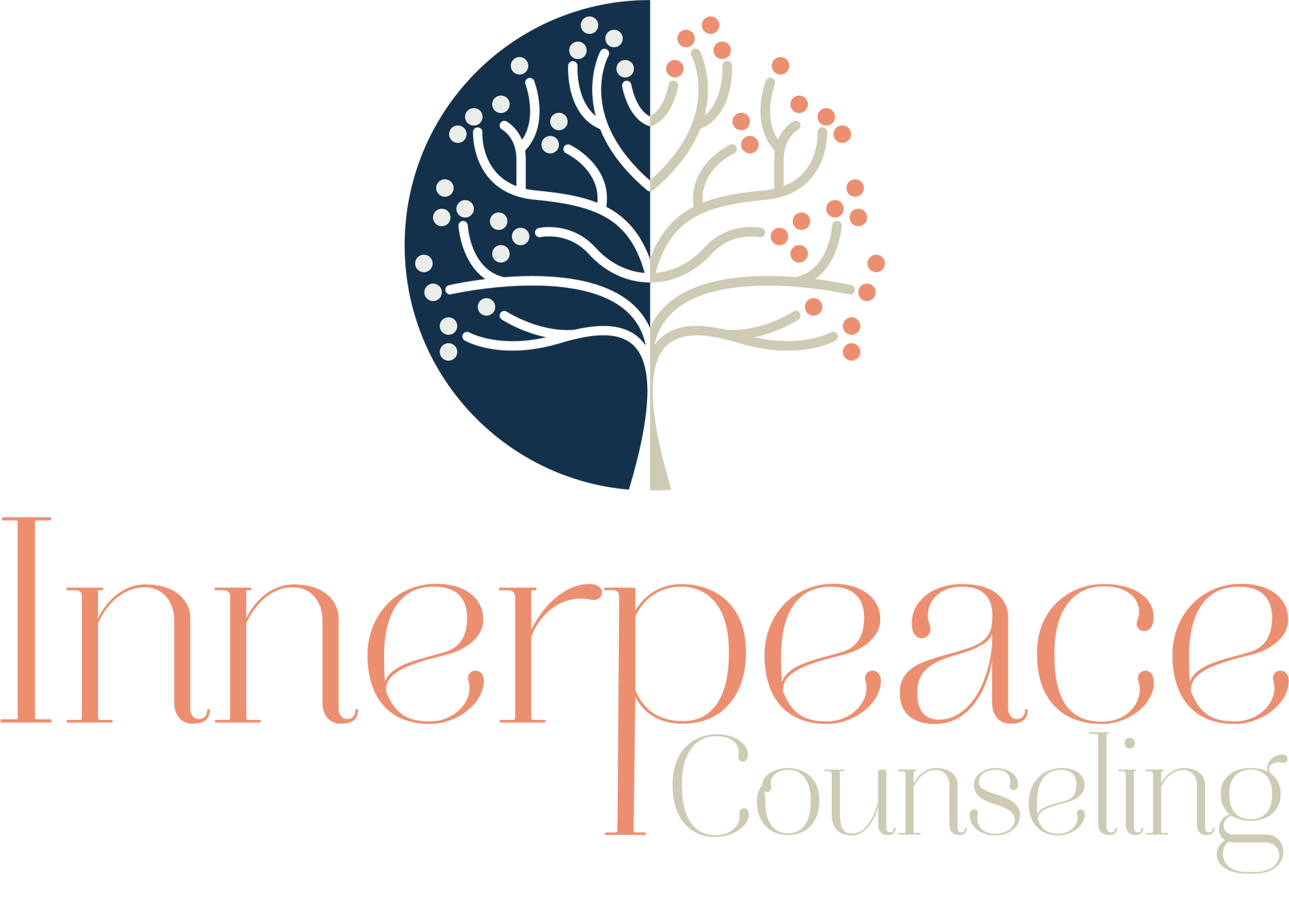Anxiety Isn’t Just In Your Head: Here’s How CBT Can Help You Rewire It

You’re not broken. You’re human. And cognitive behavioral therapy (CBT) offers a practical, powerful way to shift your thought patterns, calm your body, and rewire your nervous system for peace and clarity.
If you’ve been feeling constantly on edge or stuck in cycles of overthinking, panic, or avoidance, you’re not alone. Anxiety isn’t “just in your head,” and it’s not something you should have to carry by yourself. This article will help you understand the roots of anxiety and how CBT techniques can help you break the cycle, rewire the way you respond to stress, and begin creating the inner peace you long for.
Article Outline
1. What is CBT and Why Does It Work So Well for Anxiety?
2. Is Anxiety Really Just in Your Head?
3. How Does a CBT Therapist Help You Understand the Roots?
4. What Kind of Anxiety Disorders Does CBT Help With?
5. How CBT Techniques Help You Reframe Negative Thought Patterns
6. Can Exposure Therapy Really Help Me Face My Fears?
7. Why Avoidance is Making You Feel Worse (and What to Do Instead)
8. Regulate Your Nervous System: Relaxation Techniques That Work
9. Finding the Right CBT Therapist for Your Journey
10. Can CBT Really Transform Your Life?
What is CBT and Why Does It Work So Well for Anxiety?
CBT, or cognitive behavioral therapy, is a practical, evidence-based form of psychotherapy that focuses on the links between thoughts, feelings, and behaviors. It's especially effective for anxiety disorders because it teaches you to identify and challenge negative thought patterns, the ones that keep you feeling stuck, fearful, or overwhelmed.
Unlike some therapy approaches that can feel abstract, CBT teaches concrete tools to help you reshape your internal dialogue. Whether you’re dealing with social anxiety, generalized anxiety disorder, or post-traumatic stress disorder, CBT offers an effective treatment plan to support healing.
Is Anxiety Really Just in Your Head?
Let’s be honest: anxiety isn’t just a thought, it’s a full-body experience. You feel it in your chest, your stomach, your racing heart. And no, it’s not “all in your head.” It’s in your nervous system, and your nervous system can be rewired.
When you live in survival mode for too long, your brain becomes hyper-alert, even when you’re safe. CBT helps you break this pattern by teaching your brain and body a new way to respond. When we shift the way you think, we help your body respond with calm rather than panic.
How Does a CBT Therapist Help You Understand the Roots?
Before we can change the story, we need to understand it. As a CBT therapist, I often start with deep listening, getting to the roots of your anxiety. We don’t just focus on “fixing” the surface-level symptoms; we explore the patterns that have been with you for years.
This involves cognitive restructuring, a process where we look at your current thought patterns and behaviors, question their truth, and begin to shift them into more realistic ones. Sometimes what you're struggling with isn’t about the present moment at all, it's a result of years of internalized beliefs like “I’m not enough” or “I can’t trust anyone.” But those beliefs can be rewired.
What Kind of Anxiety Disorders Does CBT Help With?
CBT has been shown to be highly effective for a wide range of anxiety disorders, including:
- Generalized Anxiety Disorder (GAD)
- Obsessive-Compulsive Disorder (OCD)
- Social Anxiety
- Post-Traumatic Stress Disorder (PTSD)
- Panic Disorder
Whether you struggle with looping anxious thoughts, fear of social situations, or even public speaking, CBT provides tools that help you reframe and regain control.
How CBT Techniques Help You Reframe Negative Thought Patterns
Do you ever catch yourself thinking “I’m failing,” “It’s too much,” or “Something bad is going to happen”? These are known as cognitive distortions, unhelpful or negative thoughts that fuel anxiety.
CBT uses techniques like cognitive restructuring to help you recognize and challenge these distortions. We replace them with realistic ones that reflect your strength and potential. This isn’t about “positive thinking”, it’s about truthful thinking. When you change your thoughts, your emotions follow.
Can Exposure Therapy Really Help Me Face My Fears?
Yes, but gently and at your pace.
Exposure therapy is a CBT technique used to help reduce avoidance behaviors. If you’ve been avoiding social situations, driving, public speaking, or even difficult conversations, CBT can help you take smaller steps to face your fears in a safe, supported way.
This is how you rewire your nervous system. You teach your body that you can survive and even thrive in situations that once felt terrifying. It’s not easy, but it’s possible. And it’s always done at your pace.
Why Avoidance is Making You Feel Worse (and What to Do Instead)
One of the core patterns in anxiety is avoidance. It’s your brain’s way of keeping you safe, but over time, it actually reinforces fear. The more we avoid, the more anxiety grows.
In CBT, we learn to gently confront what we fear, instead of running from it. That might mean having the hard conversation, setting a boundary, or showing up even when you feel anxious. You’ll learn to face your fears head-on and break the cycle of avoidance.
Regulate Your Nervous System: Relaxation Techniques That Work
CBT isn’t just about thinking, it’s also about feeling. Anxiety shows up in your body. So, part of cognitive behavioral therapy involves learning relaxation techniques that help you calm your system and stay grounded.
Techniques like progressive muscle relaxation, deep breathing, or somatic exercises help you connect with your body and regulate your nervous system. When you feel more in control of your body, your thoughts start to slow down, too.
Finding the Right CBT Therapist for Your Journey
Finding the right CBT therapist can be the turning point in your healing journey. You want someone who listens deeply, sees your strength, and walks beside you, not in front of you.
At Innerpeace Counseling, I specialize in CBT, trauma-informed care, and somatic therapy, and I bring not only clinical experience but lived experience as a mom, military spouse, and human who’s navigated her own anxious seasons.
This isn’t about being “fixed.” It’s about being fully supported as you learn to reconnect with yourself, your body, and your truth.
Can CBT Really Transform Your Life?
Absolutely. I’ve witnessed clients go from panic to peace, from shutdown to empowered action. One client once told me, “I feel like myself again.” That’s what CBT can help you do, transform your life, one thought, one step, one victory at a time.
CBT treatment gives you a roadmap. But you’re the one taking the steps. And you don’t have to take them alone.
What To Remember
- Anxiety isn’t just in your head, it lives in your nervous system, and CBT helps you rewire it.
- Cognitive behavioral therapy is an evidence-based treatment that teaches you to challenge and change negative thought patterns.
- CBT techniques like cognitive restructuring, exposure therapy, and relaxation techniques help you build confidence and calm.
- Avoidance fuels anxiety. Facing your fears safely helps break the cycle.
- Healing happens one step at a time, and therapy is the space to take those steps.
- Therapy can help you reconnect to your body, your voice, and your worth.
- You deserve to feel safe, seen, and supported.
SHARE THIS POST:
Elissa Mount
Founder of Innerpeace Counseling
I'm Elissa, founder of Innerpeace Counseling. Becoming a therapist wasn’t just a career choice for me, it was a calling I felt as early as middle school.
Life took me on a winding path. I raised four kids, moved more than a dozen times as a military spouse, supported women and families through fitness and faith work, and faced my own challenges with anxiety, grief, chronic pain, and parenting children with special needs. Every part of my journey has shaped how I show up for you.
I believe you’re the expert on your own life. My role is to walk beside you, helping you reconnect with yourself, celebrate the small victories, and create real, lasting change. Therapy with me isn’t about labeling you or fixing you. It’s about restoring the connection and strength you already have inside.
Find Peace, Healing & Strength for a Fulfilling Life
Discover the inner peace you deserve, heal anxiety, and gain the strength for a fulfilling, confident, joyful life with expert support.
Our Recent Post:



